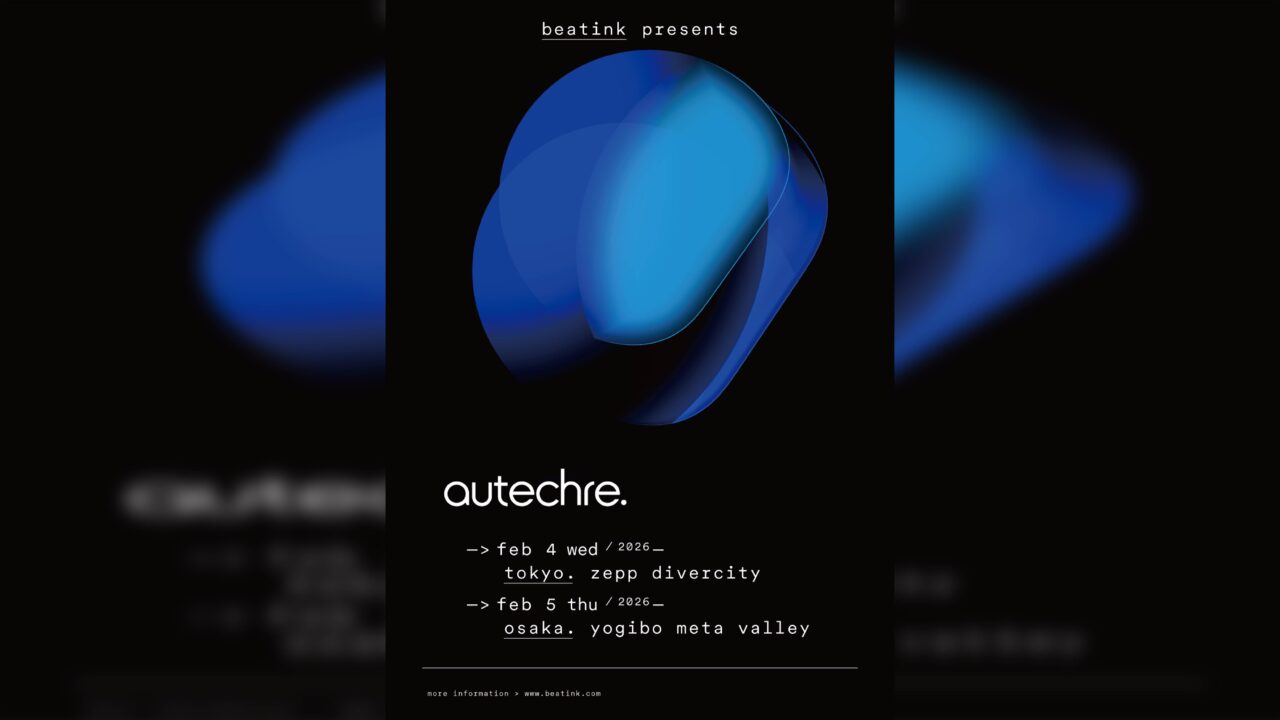Pianist Hiromi Uehara, known for her diverse musical endeavors, is a true storyteller through her art, frequently sharing the inspiration behind each of her works. With the release of *OUT THERE*, the second album from her newly formed four-piece band “Hiromi’s Sonicwonder,” set for April 4, Uehara will undoubtedly open up about the band and the album in various interviews. However, for our platform *NiEW*, we wanted to take a different approach. What if we delved into a more personal aspect of her music? That’s when our editor Sakai suggested an intriguing idea: “Why not ask her about what ‘singing’ means to Hiromi Uehara?”
Uehara, a pianist whose style often evokes the expressiveness of a voice, immediately sparked curiosity. What does she think of “singing”? In her latest album *OUT THERE*, the track “Pendulum” appears both as a vocal version featuring singer-songwriter Michelle Willis and a piano solo. Exploring the story behind the vocal version seemed like the perfect way to uncover not only the band’s unique character but also Uehara’s personal reflections on the concept of “singing.”
Thus, we sat down with Hiromi Uehara to explore the meaning of “singing” and dive into the creation of the vocal track “Pendulum.”
INDEX
Composing OUT THERE with the Actors in Mind
Following the formation of Hiromi’s Sonicwonder, your world tour kicked off in May 2023. In September, you released Sonicwonderland, and now this new album marks your second project together. It’s been nearly two years since the start of your first tour—how has the band evolved during this time?
Uehara: The sense of cohesion has really strengthened, and it feels like we’ve truly become a band. Our chemistry has become so natural, and we can easily fall into sync. As a result, the idea of creating another album with this lineup came about organically. With the last album, I had the musical concept first and then brought in the members to record. But this time, I approached it from the opposite direction—I wrote the songs with this particular group in mind, aiming to highlight their strengths. It felt like writing a script specifically tailored to the actors. The more we played together during the tour, the more ideas I had for what I wanted them to play, what kind of groove I wanted the drummer to lock into.

When reflecting on the performances of the band members—Adrian Ferro (bass), Gene Coy (drums), and Adam O’Farrill (trumpet)—have you noticed anything new or surprising during the tours and recording sessions?
Uehara: One thing that stands out about all three is their incredible ability to listen to each other’s sounds and respond in real time. Their reflexes are truly impressive—so fast, it’s almost funny. We often find ourselves grinning while playing together. What struck me especially during this recording was how each of them truly understands their role within the band. They’ve become masters of dynamics, knowing exactly when to step back and allow the others to take the spotlight. I really felt that they’ve all gotten much better at making each other shine.
That’s insightful. Now, moving on to the new album, I’d like to focus on “Pendulum (feat. Michelle Willis)” with vocals. What inspired you to include a vocal track on this album?
Uehara: I felt that vocals really fit well with the sound of this band.
What made you feel that way?
Uehara: There’s a bit of a jam band element to our sound, but sometimes, while performing, I feel that the sound is very pop. Depending on who’s playing, it might sound complex to some, but this band is able to make it sound pop. That’s why I thought vocals would fit in well. So, I decided to try it with one track on the previous album.
That would be “Reminiscence (feat. Oli Rockberger).” Why did you choose Oli for that track?
Uehara: He’s a fellow Berklee alum, and I’ve always loved his voice. I’ve had the desire to collaborate with him on a project for a long time. So when I wrote the song, I reached out to him, and we created it together.
INDEX
A Live-Style Recording: Collaborating with Michelle Willis
And on this album, “Pendulum” features the British-born, Canada-raised singer-songwriter Michelle Willis.
Uehara: “Pendulum” refers to a swinging motion, and it has a strong connection to swing (the kind of rhythmic swing that describes a curved movement). So, I wanted to incorporate a band and do it with a swinging, jazz-style beat. The feel of the English language itself has a strong swing, so when I thought about adding English lyrics to this song, I immediately felt that Michelle Willis would be the perfect fit. I absolutely love her voice and the world she creates with it.
What is it about Michelle’s voice that you particularly like?
Uehara: It’s bluesy and smoky. She has this allure that makes you think, “If I had a voice like that, I’d want to sing all the time.” There’s something so captivating about it.
Did you know her personally before?
Uehara: No, I first learned about her through the David Crosby album she participated in. After that, I started listening to her original albums, especially Just One Voice (2022), and I fell in love with her music. So, I reached out to her saying, “I’m working on a song like this, and I believe you’re the perfect person for the vocals. Would you be interested?” It was our first time meeting, but she was really excited about it. During the recording, she said, “This has been such a great day!”
How was the experience of working together in the studio?
Uehara: It was effortless, in the best possible way. We just clicked instantly, and the recording felt effortless too. We started with a simple “Ready, set, go!” and before we knew it, we were done! [laughs]
Did you give any specific direction on how you wanted her to approach the singing?
Uehara: Before we even stepped into the studio, we had already talked through ideas like, “Let’s put these lyrics here,” and “When the trumpet comes in, I’d love for you to sing it like this.” So when it came time to record, it was natural, almost like performing live.
The lyrics were a collaborative effort too, right?
Uehara: Yes, the original version of the song had Japanese lyrics that I wrote, which I recorded with Akiko Yano. When it came to the English version, I shared my ideas with Michelle—what words I wanted to include, and the message I wanted to convey—and she helped me shape it into English lyrics. Since Michelle is a native English speaker, her phrasing and flow were perfect for it.
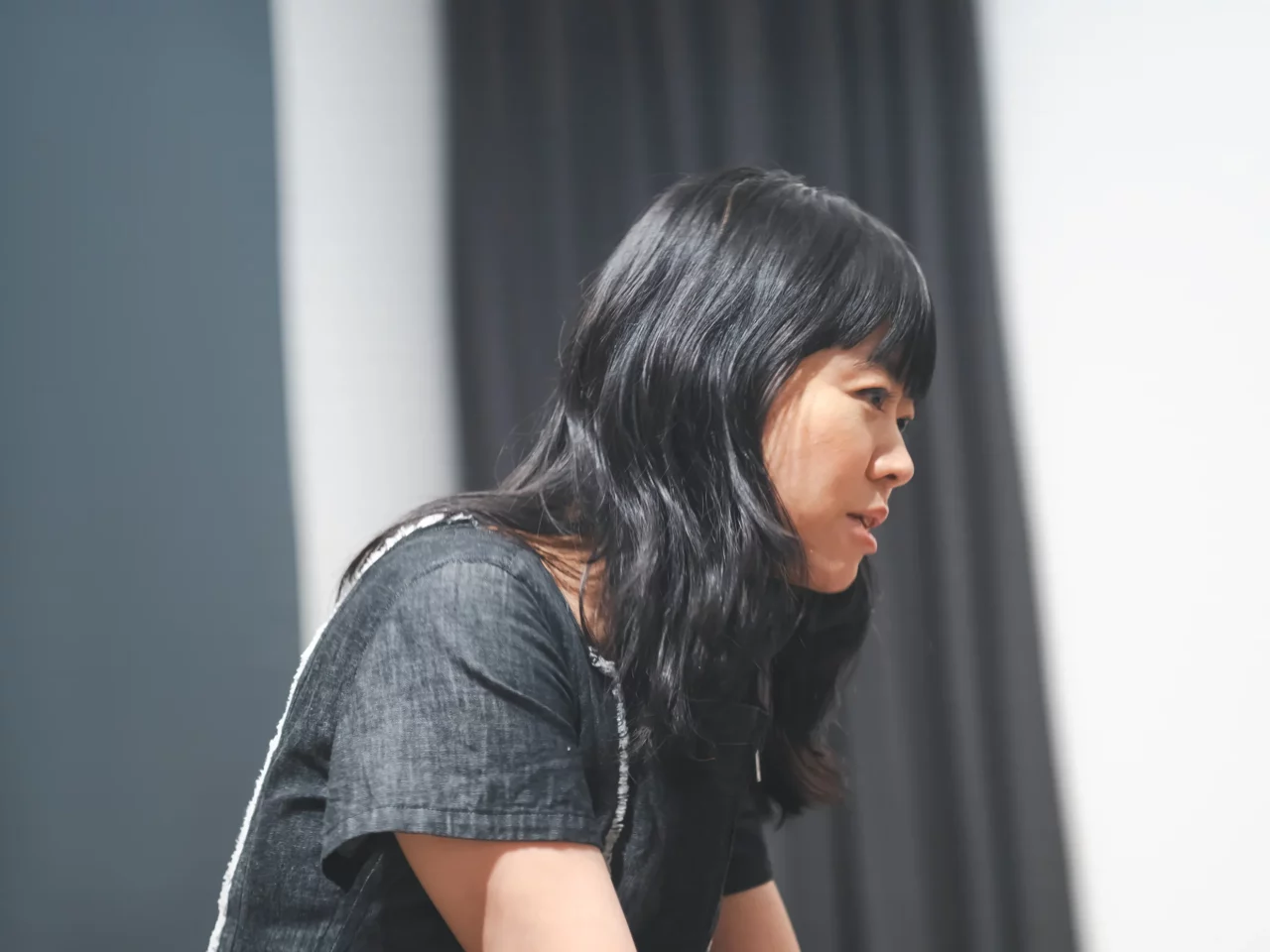
INDEX
Lyrics Flow Naturally While Humming
You wrote the original Japanese lyrics yourself. What’s your approach to writing lyrics?
Uehara: I’ve written about five songs, but it’s never been something I was asked to do. The words just come naturally as I compose. I don’t force it; I can only write in a natural flow.
So, it’s like the melody calls for the words?
Uehara: Exactly. The song comes first, and when I start humming, the words just emerge. That’s when I write them down.
Is the process enjoyable for you?
Uehara: It’s fun, but the song only truly feels complete when someone else sings it. Even when I try singing it, it never quite feels like it’s fully there.
But you do give it a try yourself, right?
Uehara: I do, but it never matches the image I had in my head. Until someone else sings it, I can’t really tell if it works.
Have you ever considered recording it yourself?
Uehara: Not at all. It would sound like a karaoke performance from an amateur.
But sometimes, it’s not about perfect technique. It’s about the unique touch someone brings.
Uehara: Well, there’s still a minimum standard, right? (laughs) As a musician, I know I haven’t reached that level yet, so I don’t even think it’s at a stage where it could have a distinct flavor.
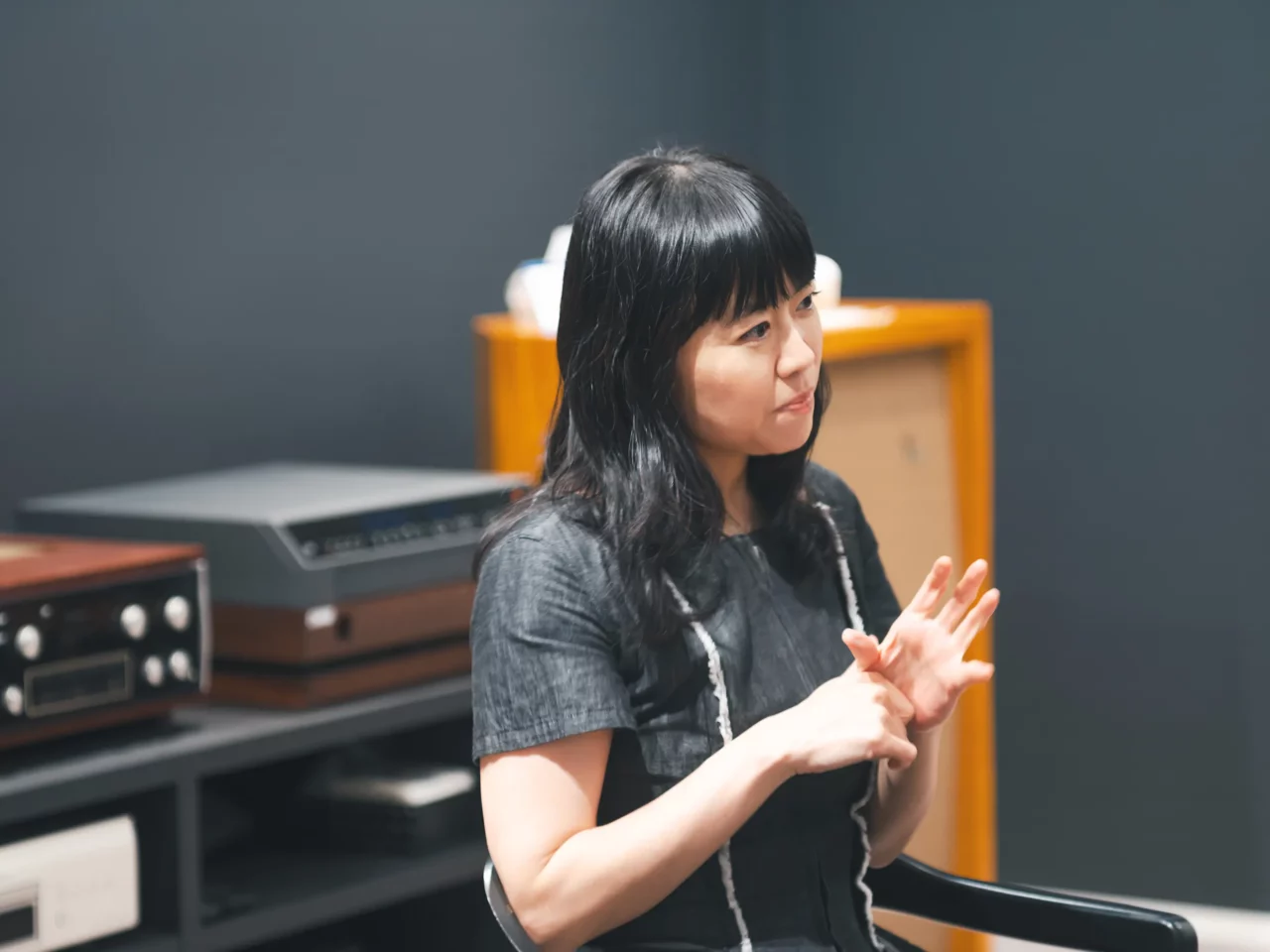
Have you ever shared your singing with anyone?
Uehara: I’ve once sung a song I did with Akiko Yano, imitating her style, in front of the staff. [laughs]
Haha, that’s great! So, you do enjoy singing, don’t you?
Uehara: I do! But there’s a big difference between humming in the shower and singing in front of others. I’m happy being a “bathroom singer.”
What was it like when you were a child? Were you drawn to singing back then?
Uehara: I used to make up my own songs and sing them all the time. I think every kid does that. But as I grew older and became more self-aware, I stopped. Still, when I was younger, I would sing while walking around everywhere. I’ve always been drawn to songs with lyrics, and I’ve spent most of my life listening to vocal-driven music.
INDEX
Singers Who Shaped Uehara: Janis Joplin and Hiroto Komoto
Which singers have had the biggest influence on you?
Uehara: There are so many, but if I had to choose one who left a lasting impression, it would be Janis Joplin. Her voice felt like a raw, soulful scream. I remember thinking, “I wish I could convey that kind of emotion on the piano.” I also adore Sarah Vaughan and Nina Simone. When I watch Nina Simone’s live performances, she’s so fully immersed in the music that it’s almost eerie. I’d watch her with a mix of awe and a bit of resignation, realizing I could never reach that depth. I also grew up loving the Jackson 5, Michael Jackson, and Joni Mitchell.
Are there any newer singers who have stood out to you recently?
Uehara: I’m absolutely in love with RAYE.
She’s fantastic! At the recent Academy Awards performance of 007, she confidently performed Adele’s “Skyfall.” Her live set at Fuji Rock last year was also phenomenal.
Uehara: I haven’t seen her live yet, but I did catch her performance during the American Music Awards broadcast. She was absolutely amazing.
How about Japanese singers? You’ve had some incredible collaborations with Akiko Yano, and you also performed with DREAMS COME TRUE in the past, right?
Uehara: Yes, I’m a huge fan of Miwa Yoshida as a vocalist. In Japan, I also really admire Hiroto Komoto, and I make it a point to see The Cro-Magnons whenever I can. Last year, I had the pleasure of watching Aina the End for the first time at an event (JAZZ NOT ONLY JAZZ) led by Shun Ishiwaka, and her performance completely blew me away. And Koh Nakamura is also fantastic.
You’ve even jumped on stage with Kaho Nakamura before. Both she and Akiko Yano play the piano while they sing, which is a style you also embrace. Have you ever been particularly drawn to that kind of performance?
Uehara: I’ve been dedicated to the piano since I was young, but the idea of singing while playing never really crossed my mind. It wasn’t until I saw Akiko Yano that I understood how seamlessly that style could come to life. In her case, the singing feels like a natural extension of the piano, and vice versa—it’s such a unique and special way of performing.
INDEX
The Art of “Supporting” vs. The Expression of “Singing” Through Performance
Shifting back to “Pendulum (feat. Michelle Willis),” how did you approach playing the piano to complement Michelle’s vocals in this track?
Uehara: I never really planned out exactly how I would play. It was more about flowing and adapting to what was happening in the moment.
It feels like you’re “singing” through the piano in a way, rather than just accompanying her.
Uehara: Yes, that’s true. But for me, it’s more about aligning myself with the essence of the song. When I’m playing alongside a vocalist, it’s like entering their world through the lyrics. Of course, the vibe of the song influences how I approach it, and it’s different when I perform with someone like Akiko Yano. But with Michelle, especially in this track, it’s about creating a kind of harmony between the piano and the voice.
In the latter part of the song, Adam O’Farrill’s trumpet solo almost feels like it’s “singing,” while Adrian Felo’s bass and Gene Coy’s drums give this deep sense of “support.” Adrian, in particular, seems to have a remarkable skill for elevating the piano, trumpet, and vocals.
Uehara: Adrian often gets attention for his technical prowess, but what truly makes him stand out is his remarkable ability to listen and adjust. He has this unique gift for making whoever is playing with him—whether it’s a soloist or a vocalist—shine even brighter. That’s the real magic of what he brings to the table. If he knew someone recognized that, I think he’d be really pleased.
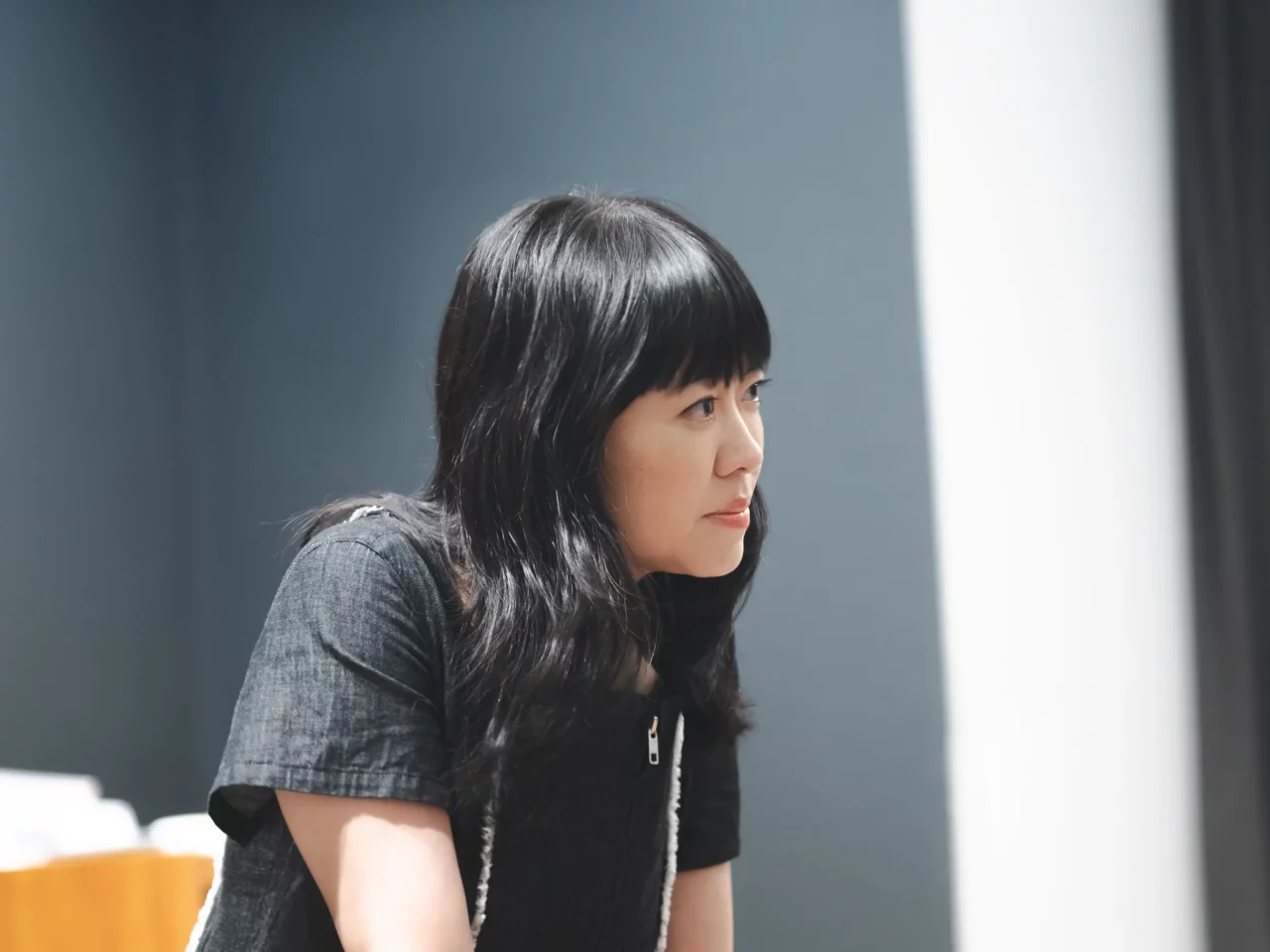
Please pass that along to him! [laughs] You mentioned earlier that the lyrics for “Pendulum” came naturally as the song unfolded. Can you describe the image or feeling that first came to you when that happened?
Spin wide, spin light
Floating in a summer mind
Watching you, I’m
Wondering where you go
Wandering all alone
Hesitating
Among the people passing
There am I
You are floating unanchored in lightSwing forth, swing wide
Swing me to the other side
Morning comes I’m Carried in the sound
Rush and body bound
Push pull, torn I’m holding every feeling
We are floating unanchored in lightAnd like a boat out on the waves
Shimmering in cloud cascades
You surround the breath I hold
The more I give the more you go— “Pendulum (featuring Michelle Willis)” *partial quote
Uehara: Life feels like a pendulum—no matter what happens, it continues on its steady rhythm. Each day lasts 24 hours, and each week has seven days, ticking away like a pendulum. Everyone experiences this same cycle, but within it, there are countless stories and dramas. Life keeps unfolding until the pendulum eventually stops. That’s the essence of what I wanted to capture in the song.
You’ve conveyed such emotions, images, and landscapes through your piano before, but this time, you felt the need to express it with words.
Uehara: Yes. The piano is always with me, and I often feel it speaks more directly than words. But sometimes, at unexpected moments, the words naturally follow. This was one of those times. I don’t really have the skill to write lyrics on demand for a specific theme, but when words emerge naturally from the music, I feel it’s important to let them come to life.
Looking forward, do you feel inclined to collaborate with vocalists again and create more songs with lyrics?
Uehara: Definitely. There’s something really special about working with someone else on something I’ve always admired, like vocals. I felt that when I worked with Michelle, and I absolutely love her voice. So if the opportunity arises, I’d be happy to do it again. But as for me singing myself? Probably not. [laughs]
Hiromi Uehara Hiromi’s Sonicwonder “OUT THERE”(CD)
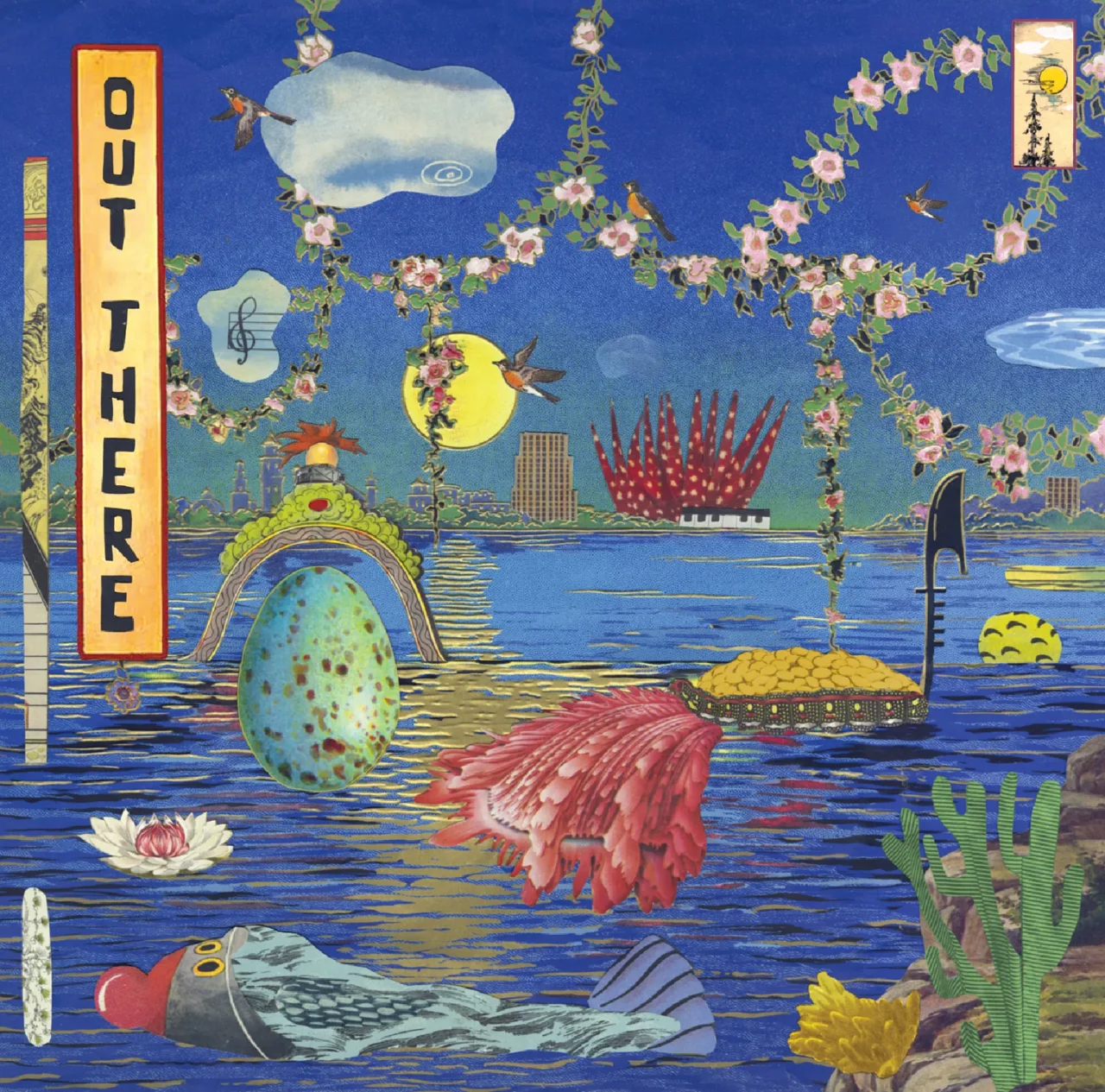
Released on Friday, April 4, 2025
Price: 3,300 yen (tax included)
UCCO-1246
1. XYZ
2. Yes!
3. Pendulum (featuring Michelle Willis)
4. OUT THERE: Takin’ Off
5. OUT THERE: Strollin’
6. OUT THERE: Polaris
7. OUT THERE: The Quest
8. Pendulum
9. Balloon Pop
Hiromi Uehara: piano & keyboards
Adrian Fellows: bass
Gene Coy: drums
Adam O’Farrill: trumpet
Michelle Willis: vocals on 3


















